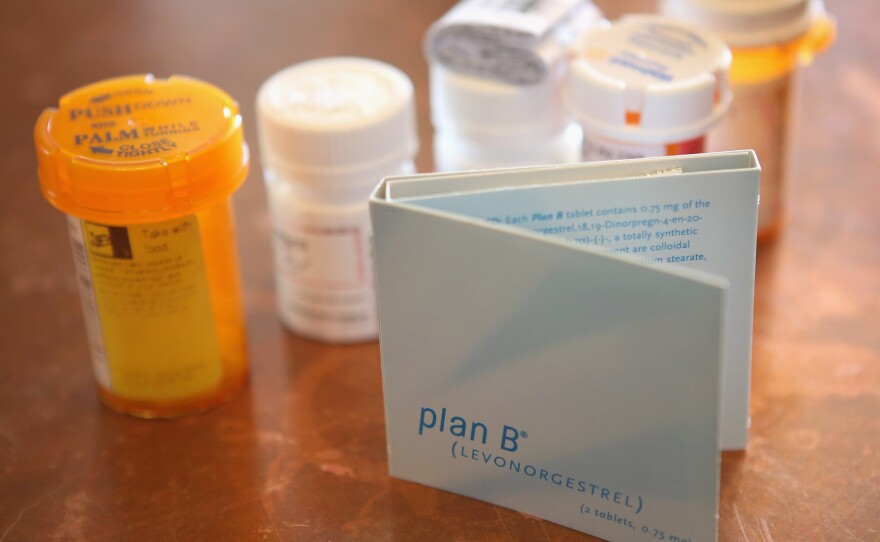A federal judge ordered Friday what women's groups have failed to accomplish politically for a dozen years. He ruled that Plan B, the most commonly used morning-after birth control pill, be sold without a prescription or other restrictions to women of all ages.
Federal District Court Judge Edward Korman has been overseeing the case on and off since 2005. He found, among other things, that the Food and Drug Administration "has engaged in intolerable delays ... that could accurately be described as an administrative agency filibuster" in deciding whether to approve a 2001 citizens' petition to allow nonprescription sale of the drug.
Health and Human Services Secretary Kathleen Sebelius overruled the FDA when the agency finally decided to drop the age restrictions it imposed in 2006 (which Korman himself had ordered reduced from 18 to 17 in 2009).
"Her decision was arbitrary, capricious, and unreasonable," the judge wrote.
Korman ordered the FDA to grant the petition (originally filed by the Center for Reproductive Rights) within 30 days to make all levonorgestrel-based emergency contraceptive products available "without a prescription and without point-of-sale or age restrictions." Those products include Plan B, in both one- and two-pill configurations, and Next Choice, a generic version.
The White House's Response
It remains unclear whether the administration will appeal the ruling. At the White House on Friday, spokesman Jay Carney said that from a policy point of view, nothing has changed.
"Secretary Sebelius made this decision," he said. "The president supported that decision after she made it, and I think said so in the briefing room when he was asked about it. And he supports that decision today."
Carney, however, along with spokespeople at HHS and FDA, referred legal inquiries to the Justice Department. The Justice Department issued a statement saying it is "reviewing the appellate options and expects to act promptly."
'A Big Victory'
Advocates for the drug, meanwhile, were thrilled with the ruling.
"Today, science has finally prevailed over politics because a judge has ruled that it must," Nancy Northup, president and CEO of the Center for Reproductive Rights, said. "This is enormous. This is going to be a big victory for women."
Lifting age restrictions isn't just beneficial for younger teens, advocates say. They argue the status quo also created barriers for older women. Those who didn't need a prescription still had to request Plan B from behind the pharmacy counter.
"And so all women are having to find open pharmacies and come with their government ID, and go through a series of lines or questions or asking for the product," said Susan Wood, who quit her post at the FDA over its refusal to make Plan B available without a prescription in 2005.
"[It's] unlike anything you would ever see for any other over-the-counter birth control methods or any other over-the-counter medicines," she said.
'Particularly Controversial'
Wood, now a health policy professor at George Washington University, said she was also pleased the judge noted that Plan B does not cause even the earliest of abortions.
"This is a product that's clearly a contraception product and that can help all women prevent unintended pregnancy, and therefore it should be common ground and not politicized," she said.
Indeed, Judge Korman managed to single out in a few sentences exactly what has made the issue just so politically potent for so many years:
"This case has proven to be particularly controversial because it involves access to emergency contraception for adolescents who should not be engaging in conduct that necessitates the use of such drugs and because of the scientifically unsupported speculation that the drug could interfere with implantation of fertilized eggs."
Still In Opposition
But opponents remain unhappy, both with the drug and with the idea that it could be freely available to young girls.
"In obtaining these drugs over the counter, these girls are going to be bypassing important medical screenings, which could screen for [sexually transmitted diseases] and also are the first-line defense in screening for girls at risk of sexual abuse," said Anna Higgins, director of the Center for Human Dignity at the Family Research Council.
"Teen girls need parents, not unfettered access to abortion-inducing drugs," said Marjorie Dannenfelser, president of the Susan B. Anthony List.
Another question is whether making the drug available without prescription might actually make it less accessible to some. Over-the-counter drugs generally are not reimbursed by insurance and a dose of Plan B One Step generally costs $40 to $50.
"We're going to continue to work with our fellow advocates to make sure that it is affordable for women," said Northup of the Center for Reproductive Rights.
But making the morning-after pill fully nonprescription does remove one line of argument from those who are suing over the Affordable Care Act's contraceptive coverage requirement. Nonprescription products are not included in that provision.
Copyright 2013 NPR. To see more, visit www.npr.org.






